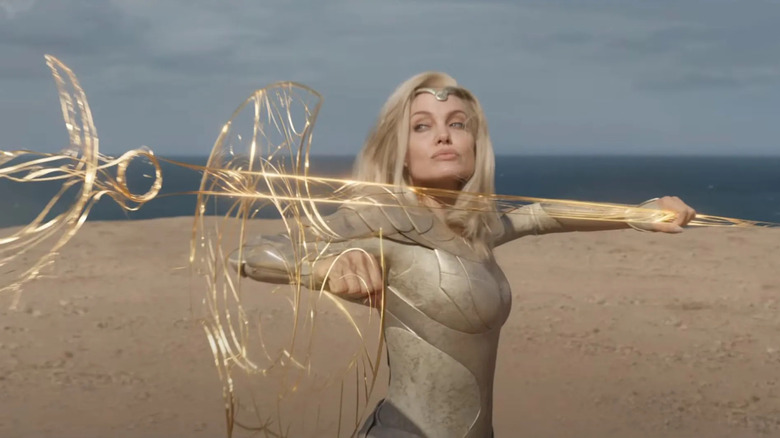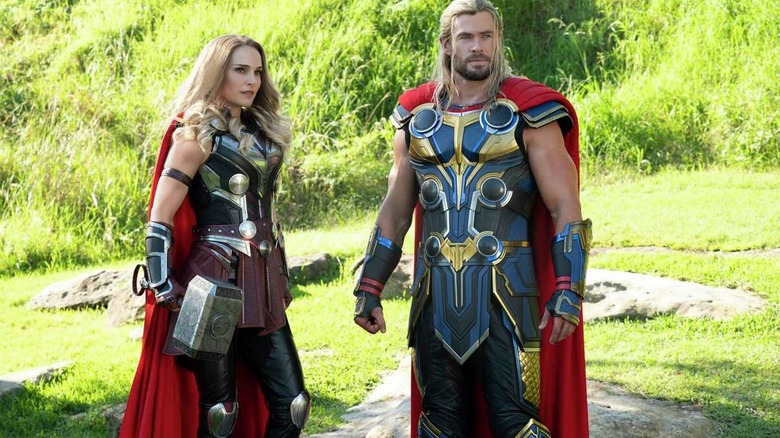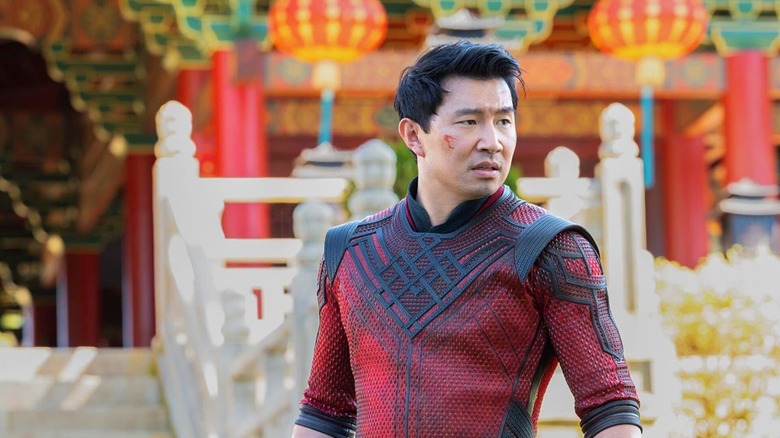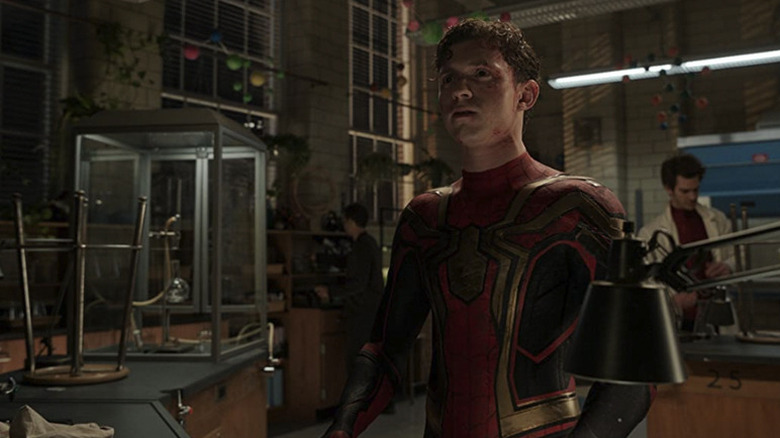The Russo Brothers Have A Very Fair Response To The MCU Phase 4 Criticism
When Disney bought Marvel in 2009, they immediately followed through on a plan to create a broad, interconnected superhero universe. At the time, they were dealing with B- and C-list characters (the X-Men and Spider-Man were taken), so an Avengers feature film seemed like a logical step. Disney officially announced the cast of "The Avengers" in 2010, and communicated to potential fans very carefully that films like "Iron Man 2" and "Thor," while arguably mediocre in themselves, were exciting events as they would eventually lead to a team-up film. "The Avengers" was, as you might have heard, a hit.
Since then, the Marvel publicity department has meticulously orchestrated several enormous press events to announce upcoming "series finales," allowing each individual film in the MCU to feel like a chapter in a larger super-narrative. Additional post-credits cookies, literal ads, and winking references were often dangled in front of eagle-eyed fans, each one hoping to predict what characters or events would appear in future installments. It was a series of movies that was just as concerned with advertising as it was with telling stories.
Now firmly ensconced it its fourth phase (not to be confused with the 1974 Saul Bass film "Phase IV"), the MCU has encountered criticisms for being perhaps aimless. "Avengers: Endgame" was released in 2019. People took a pandemic-induced breath, rested their eyes, and geared up for more. The expected press release as to what the next finale might hold, however, never came. And the stories in the newer films — "Eternals," "Shang-Chi," "Doctor Strange 2," "Thor 4" — seemed wildly disconnected ("Eternals" takes place largely in the ancient world). Fans have, to date, been baffled as to where this particular wave of films might be going.
So the time is right to check in with the "Endgame" guys and get their take on all of this.
The MCU vis-à-vis U2
In a recent interview with The Hollywood Reporter, Anthony and Joe Russo, the directors of four of the more successful MCU films, including "Avengers: Infinity War" and "Endgame" (two of the most successful films of all time) stated that they were excited about the future of the MCU, citing the old saw that high expectations can lead to undeserved criticism. In the past, the MCU films have dominated the global box office, with films often breaking records. Anthony Russo pointed out that not every film needs to make a billion dollars.
"The overwhelming success of those movies has caused them to represent something that has become 'other,' or maybe not attainable to some others for whatever reason. Not every movie has to be liked globally."
Joe, meanwhile, told a brief anecdote about another old saw: the tendency of younger people toward contrarianism. He cited backlash — a very real phenomenon — for the current wave of Phase Four criticism, pointing to U2 as precedent.
"When I was 19, I used to love U2. And then they started getting some commercial success, beyond their MTV early days, where they were the biggest band in the world. And I was like, 'I hate U2. I'm sick of U2. They're so ubiquitous!' That was just my ego trying to define myself against the masses. Then, 10 years later, I was like, 'I f***ing love U2. Why did I do that?' I outgrew it. It feels like a very juvenile conversation. The whole thing feels sad and cynical and pessimistic. You're talking about movies that 10-year-olds are weeping over and begging to go see. They'll remember for decades that they were there with their grandfather. Like, give me a f***ing break."
It's just a show, I should really just relax
The Russo Brothers continued the conversation in an additional interview they gave with The Direct, with Joe pointing out that a variety of new characters, stories, genres, and scenarios may make up for any of the MCU's currently perceived shortcomings. The post-"Endgame" entries in the ongoing series have encompassed several TV seasons ("WandaVision," "Loki," and others, each made in a different genre) as well as more auteur-driven feature productions that seem to have come from filmmakers rather than a studio; "Eternals" is at least as much a Chloé Zhao film as a Kevin Feige film. Joe Russo also touted the fun he had watching the nostalgia-soirée "Spider-Man: No Way Home."
"I'd rather go with everyone else and see it and be excited. I mean, 'No Way Home' was incredible. Like, I loved that movie ... It was one of the better experiences I've had in the theater in a long time. So, you know, I love how diverse Marvel's getting. I love the choices that they're making to ... swim in different genres, push movies towards horror or absurdist comedy."
"Just relax and enjoy" is, at best, cold comfort for audience members who find the MCU films to remain distracting and mildly entertaining, but also tired, aimless, and — at worst — played out. A common criticism of the MCU is that, despite a wide variety of settings and genres, they all feel somewhat the same. A similar militant attitude and an over-reliance on bathos marks every single MCU film. After all, the interconnected nature of these movies mean they must feel at least somewhat of a piece.
More than one direction
Russo, however, also points out that there has been a great deal more variety in the series than before. The reliable "Team up to fight a super-powerful supervillain" mold is common for comics; the world of superheroes is morally absolute, and "good guys" fight "bad guys" ad infinitum, but it's been done. Indeed, a decade of the series was devoted to that mold. Where Phase Four is headed is less relevant, according to Russo, than appreciating what's here:
"[T]hey're taking risks, you know, and people are gonna appreciate those risks and other people are not gonna like those risks ... but the good news is they're not repeating themselves. They're not doing the same thing that they did for 10 years. They're going in a completely different direction."
Given the precedent within the MCU, it may be hard for many to imagine what might be coming in terms of a "season finale" with Phase Four. A central supervillain has not emerged. New characters have been introduced in post-credits scenes (Hercules! The Black Knight! Blade! Eros! Pip the Troll! Clea!), but there seems to be little connective tissue between them. Details are accumulating without adding up.
The MCU has its audience so well-trained to look forward to the next thing, they are finding themselves disappointed to find that the plan may be improvised. The next film in the series, "Black Panther: Wakanda Forever," due in theaters on November 11, may provide answers. Or perhaps not. Maybe re-training ourselves to see each film as a standalone, disconnected adventure may be the future of the MCU.



